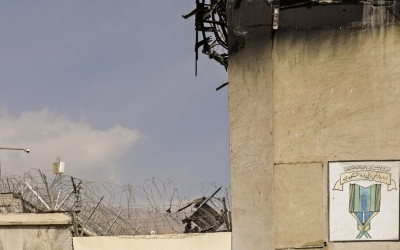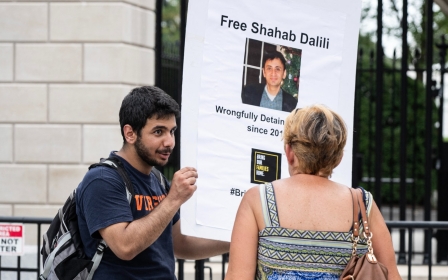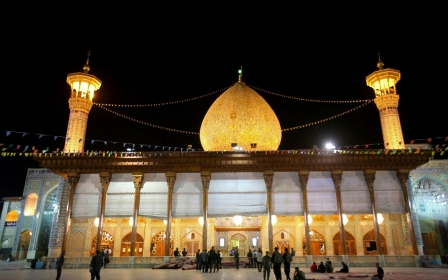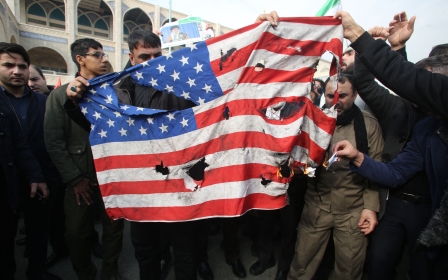Qatar to host US-Iran prisoner exchange next month, report says
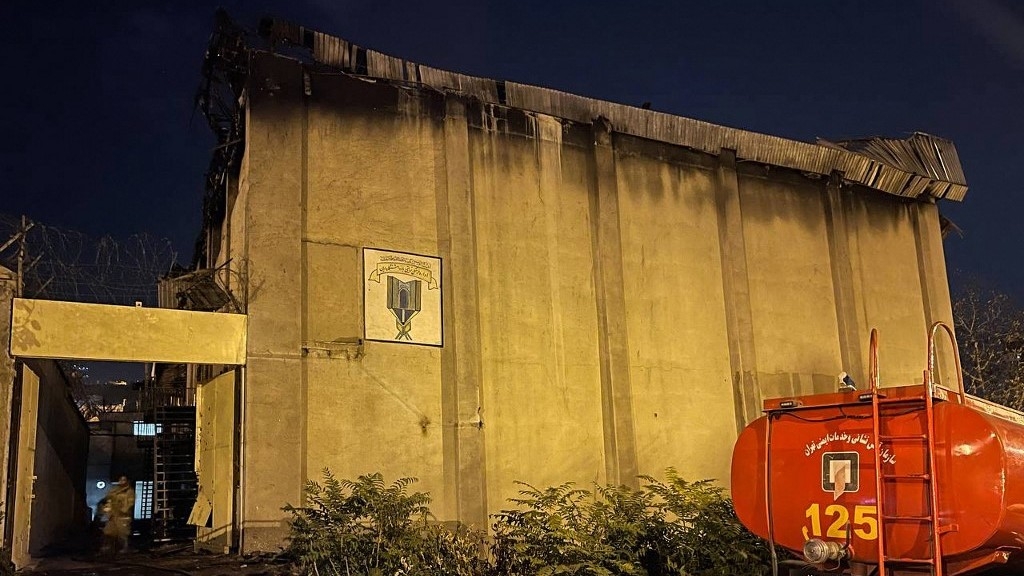
The US-Iran prisoner exchange of five jailed Americans will be hosted by Qatar next month, according to a report this week by Amwaj Media.
The UK-based publication that focuses primarily on Iranian issues says the detainees have been relocated to a hotel and will be under house arrest until the exchange next month.
Reports say that detainees are being housed in individual rooms on a secure floor and that they can see visitors only from their immediate families. Additionally, they've been provided with mobile phones that have internet access.
“Unlike past Iran-US swaps - where detainees were either flown to Oman, Switzerland or the United Arab Emirates (UAE) - the prisoner exchange will this time take place in Doha,” Amwaj media reported.
“Notably, Qatar’s role in facilitating the swap also entails footing the bill for costs associated with converting the South Korean wons to euros.”
Middle East Eye reached out to the US State Department and the Qatar embassy for comment but neither responded in time for publication.
Last week, the United States reached an agreement with Iran to release several imprisoned Iranians and grant access to $6bn in frozen Iranian oil revenue in exchange for the release of five jailed Americans.
Iran's semi-official Tasnim news agency said $6bn of Iran's money in South Korea would first be converted into euros and then sent to an account in Qatar that Iran could access.
The funds are being released under the condition that they be used exclusively to purchase essential items, including food and medication.
In June, Middle East Eye first reported that Washington and Tehran were progressing on nuclear talks and the two sides agreed to an interim deal where Iran would not enrich uranium to 60 percent and would cooperate with the International Atomic Energy Agency.
Sources later told MEE that the US insisted any further progress on an agreement could not be made until a deal was reached regarding US-Iranian dual national prisoners.
Left behind
On Tuesday, a US permanent resident currently detained in Iran started a hunger strike to protest against being left out of the agreement between Washington and Tehran.
"The deal is being done and he's not part of it. That was very heartbreaking," Shahab Dalili's son, Darian, said in an interview with Reuters.
Darian decided to begin a hunger strike to raise awareness about his father, Shahab, who also began a hunger strike after a phone call with his son.
Shahab, 60, was detained in Tehran in April 2016 as he was visiting the country for his father's funeral. He was charged with aiding a foreign country and given a 10-year prison sentence.
During a State Department press briefing on Monday, deputy spokesperson Vedant Patel was asked by reporters why Shahab Dalili was not included in the prisoner exchange deal, to which Patel said that the US permanent resident had not yet been declared "wrongfully detained".
The State Department issues a "wrongfully detained" determination for cases in which Washington views an individual was detained on "discriminatory or arbitrary grounds". By making this determination, it kickstarts offices in the agency "to develop a strategy to secure their release".
Middle East Eye propose une couverture et une analyse indépendantes et incomparables du Moyen-Orient, de l’Afrique du Nord et d’autres régions du monde. Pour en savoir plus sur la reprise de ce contenu et les frais qui s’appliquent, veuillez remplir ce formulaire [en anglais]. Pour en savoir plus sur MEE, cliquez ici [en anglais].


